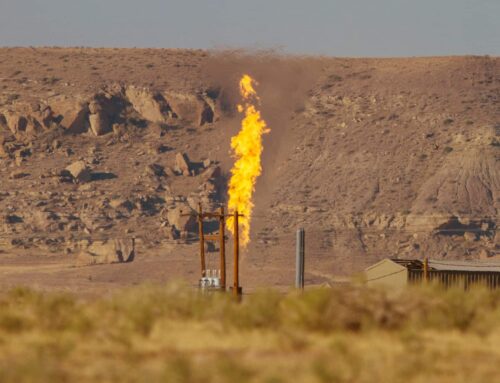America has seen its fair share of tough times these days: an ongoing war, a spate of devastating natural disasters, and a stumbling economy have all weighed heavily on families this fall. But there’s one group of Americans who’ve weathered the storm quite comfortably: top executives at big oil companies. With gasoline hovering at $3 a gallon and home heating oil prices expected to be the highest in recent memory, Big Oil execs have all the reason in the world to kick back, snack on brie and drink a little Chablis.
Since major energy companies are reaping record profits, you might think that Congress would, for once, stop trying to shovel tax dollars into Big Oil’s pockets. You’d be wrong. Lawmakers have been floating a whole bunch of porky proposals for the oil and gas industry in the past few weeks, huge boondoggles that would cost taxpayers billions of dollars but do nothing to lower the price at the pump. To lawmakers, oil pork is like an itch they can’t stop scratching, and nothing seems to stop the craving.
The ink had not dried on the energy bill, one of the biggest piles of pork ever to be enacted by the Congress, when lawmakers began plotting an encore performance. Buoyed by high gas prices in the wake of Hurricane Katrina, House lawmakers thought that they could use the public’s outrage as a cover to pass an “energy bill II” that would subsidize the oil industry without actually dealing with high gas prices. So they stitched together a smattering of discarded table scraps from the last energy bill – provisions so porky and controversial that they couldn’t pass the first time – and gave the bill a patriotic title: the “Gasoline for America’s Security Act.”
But even a good name couldn’t save this bill. The bill barely squeaked through the House – but only after the House leadership held the vote open for 45 minutes while they arm-twisted reluctant Republicans to vote for the measure. But its ugly cousin was doomed in the Senate, which killed the bill this week when Sen. Lincoln Chafee (R-RI) cast the deciding vote against it, causing it to fail in committee.
Don’t think the giveaways are over yet. There are more oil boondoggles on the horizon. A few weeks ago, Rep. Phil English (R-PA) proposed a huge tax break for oil and gas drillers. Rep. English’s bill would give energy companies a 100% deduction for new oil and gas wells built before 2008.
All this federal largesse for Big Oil makes us scratch our heads. It’s not as if the industry needs the money: oil companies are reaping record profits this year, thanks to the high cost at the pump. In the third quarter of 2005, ExxonMobil recorded the highest quarterly profits in the history of commerce: they raked in $9.92 billion, and are on pace to become the biggest company in the world by year’s end. The other giants did just as well.
While oil execs have probably been jumping for joy in the privacy of their own mansions, they’ve been spending a lot of money trying to put on a more humble public face. Recently, ExxonMobil launched an ad campaign to downplay their mind-boggling profits, and the president of the American Petroleum Institute told reporters that even if the oil industry hasn’t fared so badly, their profit margins “are half the size of the returns of the financials and pharmaceuticals.” Give us a break.
Recently, lawmakers have responded to the national outrage by talking tough on gas prices. Speaker of the House Dennis Hastert called on major oil companies to chip in and help bring down prices at the pump, and the Senate may finally take a good look at price gouging. But that’s all a bunch of hot air. At the end of the day, lawmakers will weigh their options and take the path of least resistance that leads to the smoothest reelection.
At a time of record gas and energy prices, it is unconscionable that we are not seeing more leadership from our elected officials. Instead of dealing with these bread and butter issues, Congress plays political games while Americans pay with their pocketbooks.










